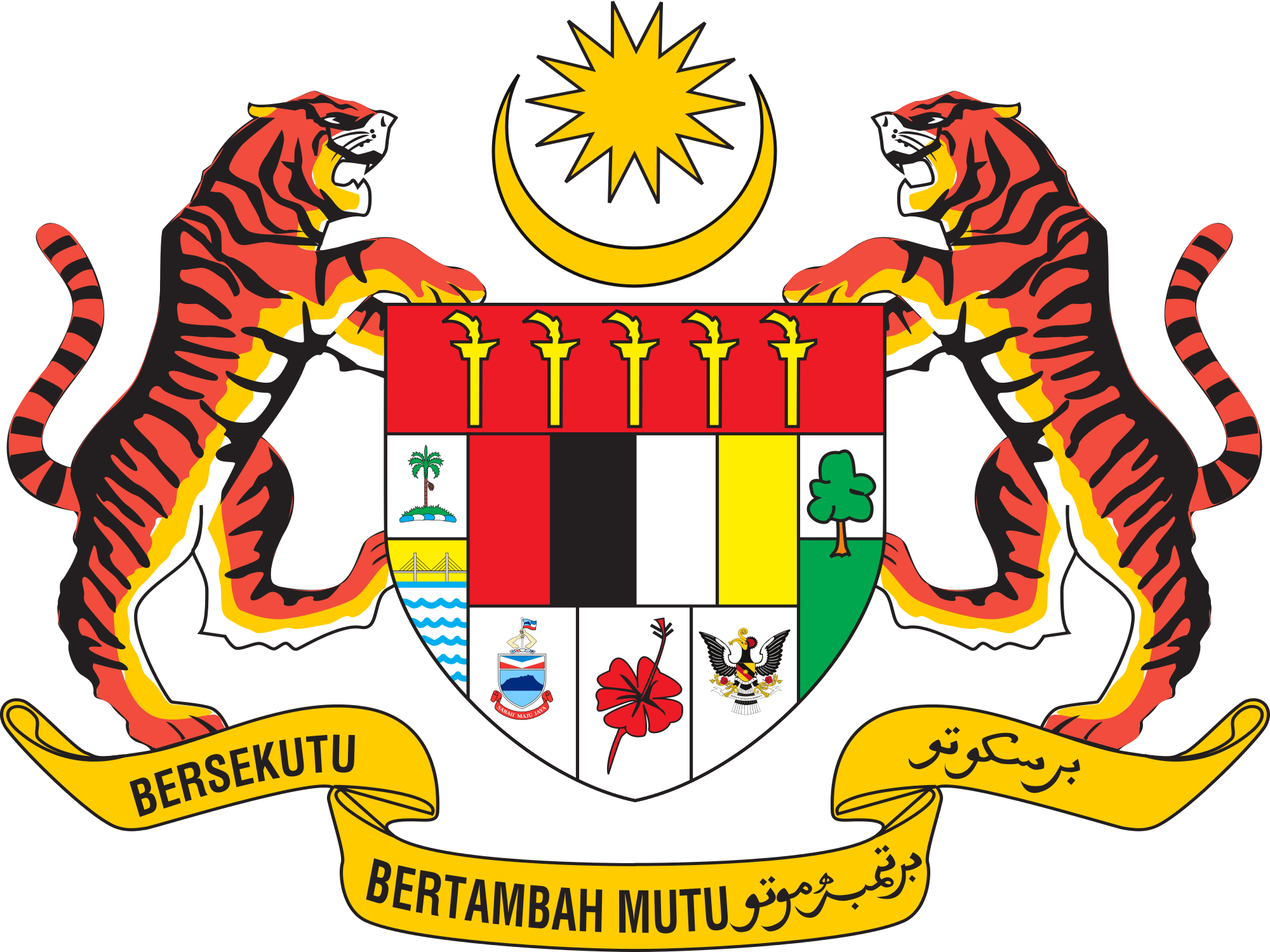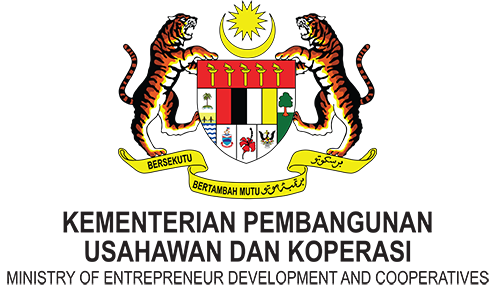| No. |
MINISTRY |
IMPLEMENTER / AGENCY |
PROGRAMME |
OBJECTIVE / ACTIVITY |
SECTOR |
WEBSITE/ GENERAL LINE |
STAGE OF BUSINESS |
| 1 |
Ministry of International Trade & Industry (MITI) |
Bahagian Pembangunan Usahawan (BPU) |
Showcase Satu Daerah Satu Industri (SDSI) |
Increase income of rural community through production of goods and services identified to each district. |
Services |
www.miti.gov.my /
603-8000 8000
|
Growth |
| 2 |
Ministry of International Trade & Industry (MITI) |
Bahagian Pembangunan Usahawan (BPU) |
Vendor Development Programme (VDP) |
The Vendor Development Programme (VDP) facilitates Bumiputera SME's vendors with the assistance from GLC's and MNC's on major services / manufacturing based industries. |
Manufacturing & Services |
www.miti.gov.my /
603-8000 8000
|
Growth |
| 3 |
Ministry of International Trade & Industry (MITI) |
Bahagian Pembangunan Usahawan (BPU) |
Product and Quality Enhancement Programme (GroomBig) |
Nurture, groom and elevate Bumiputera SMEs to a higher level from micro to small to medium enterprises and ultimately, become export-ready companies which ready to market their product in the domestic market and export their products and services globally.
|
Manufacturing & Services |
www.miti.gov.my /
603-8000 8000
|
Export |
| 4 |
Ministry of International Trade & Industry (MITI) |
Malaysian External Trade Development Corporation (MATRADE) |
Market Development Grant (MDG) |
Assistance for SMEs, Service Providers, Trade & Industry Association, Chamber of Commerces and Professional Bodies to undertake activities for development of export market. |
All |
www.matrade.gov.my /
603 - 6207 7077
|
Export |
| 5 |
Ministry of International Trade & Industry (MITI) |
Malaysian External Trade Development Corporation (MATRADE) |
Bumiputera Exporters Development Programme (BEDP) |
Export assistance programmes design for SMEs Bumiputera companies. The programme helps SMEs to develop the necessary skills and knowledge to penetrate and further expand their export markets. |
Manufacturing & Services |
www.matrade.gov.my /
603 - 6207 7077
|
Export |
| 6 |
Ministry of International Trade & Industry (MITI) |
Malaysian External Trade Development Corporation (MATRADE) |
Women Exporters Development Programme (WEDP) |
Export assistance programmes designed for SME women companies. The programme helps SMEs to develop the necessary skills and knowledge to penetrate and further expand their export market. |
Manufacturing & Services |
www.matrade.gov.my /
603 - 6207 7077
|
Export |
| 7 |
Ministry of International Trade & Industry (MITI) |
Malaysian External Trade Development Corporation (MATRADE) |
eTRADE |
Assistance for SMEs to participate in international leading e-marketplace via eTRADE. |
All |
www.matrade.gov.my /
603 - 6207 7077
|
Export |
| 8 |
Ministry of International Trade & Industry (MITI) |
Malaysian External Trade Development Corporation (MATRADE) |
Going Export Programme (GoEx) |
This programme is to identify, nurture and develop SMEs to be more competitive in the international arena, providing access to international networks and increase exports as well as expand new business opportunities with existing and new markets. |
All
( Automotive, healthcare, product, e&e, lifestyle, O&G, F&B, Building Materials, ICT) |
www.matrade.gov.my /
603 - 6207 7077
|
Export |
| 9 |
Ministry of International Trade & Industry (MITI) |
SME Corporation Malaysia (SME Corp. Malaysia) |
SME-Brand Development Programme |
Enhance visibility of Malaysian products and services both in domestic and global market:
- National Mark of Malaysian Brand.
- Malaysian Brand Forum 2015
- Brand Development Workshop
Branding & Packaging Workshop
|
Manufacturing & Services |
www.smecorp.gov.my/
603 - 2775 6000
|
Export |
| 10 |
Ministry of International Trade & Industry (MITI) |
SME Corporation Malaysia (SME Corp. Malaysia) |
Industrial Linkages Programmes (ILP) |
Develop linkages between capable SMEs and MNCs / GLCs as well as Large Companies. |
All |
www.smecorp.gov.my /
603 - 2775 6000
|
Export |
| 11 |
Ministry of International Trade & Industry (MITI) |
Malaysia Automotive Institute (MAI) |
Lean Production System Programme |
Transform the SME factory and workshop in automotive from traditional management to the LPS Management. |
Manufacturing |
www.mai.org.my /
603 - 8318 7742
|
Growth |
| 12 |
Ministry of International Trade & Industry (MITI) |
Malaysia Automotive Institute (MAI) |
MAI LPS Roundtable Dialogue |
Tackle the LPS assessment criteria which is the production system itself since it will touch on the Safety, Quality, Cost and Delivery (SQCD) in striving to become the world class vendors. In 2015, MAI will conduct 2 MAI LPS Roundtable Dialogue 2015:
- JIDOKA
- Level Up
Floor Visual Management Level Up
|
Manufacturing |
www.mai.org.my /
603 - 8318 7742
|
Growth |
| 13 |
Ministry of International Trade & Industry (MITI) |
Malaysia Automotive Institute (MAI) |
GSAS-GVC Development Programme |
Facilitate SMEs' integration into Global Value Chain / Small Medium Enterprise Automotive Sector (GSAS) in major industries within APEC Countries and build their capacity for sustainable and inclusive business growth. |
Manufacturing |
www.mai.org.my /
603 - 8318 7742
|
Growth |
| 14 |
Ministry of International Trade & Industry (MITI) |
Malaysia Automotive Institute (MAI) |
Export Capable Supplier Development |
- Developing the current Malaysian Supplier to meet the world-class standards thru Quality and Delivery, and promote national brand thru export initiatives; and
- This programme is developmental in nature that goes hand-in-hand with the MATRADE GO-EX and Mid-Tier Companies involving 10 companies in rubber, plastic and metal sub sectors.
|
Manufacturing |
www.mai.org.my /
603 - 8318 7742
|
Growth |
| 15 |
Ministry of International Trade & Industry (MITI) |
Malaysia Automotive Institute (MAI) |
Malaysia Automotive Bumiputera Business Opportunity Workshop (BumiAUTO) |
Transform the Bumiputera Entrepreneur by:
- Enhance Bumiputera participation in the automotive sector by identifying business opportunities in the automotive industry supply chain;
- Identify key enabler at the macro level such as policy and institutional framework for the success of efforts to increase Bumiputera participation; and
- Identify the type of assistance and support for each specific business opportunities identified during the BumiAUTO workshop.
|
Manufacturing |
www.mai.org.my /
603 - 8318 7742
|
Growth |
| 16 |
Ministry of International Trade & Industry (MITI) |
Malaysia Automotive Institute (MAI) |
MAFTA |
The collaboration between Malaysia & Australia through innovative prospects benefited Malaysian automotive community as a whole in enhancing their capabilities & competitiveness. |
Manufacturing |
www.mai.org.my /
603 - 8318 7742
|
Export |
| 17 |
Ministry of International Trade & Industry (MITI) |
Malaysia Automotive Institute (MAI) |
4R1S System (formerly known as SCD - E-commerce enabled standardization parts plus Communication Portal - Total Automotive Solution Portal (TAPS)) |
Customized quality management system for the after sales and services sector |
Manufacturing |
www.mai.org.my /
603 - 8318 7742
|
Growth |
| 18 |
Ministry of Science, Technology & Innovation (MOSTI) |
SIRIM Berhad (SIRIM) |
Product and Quality Enhancement Programme (GroomBig, Innovation) and Training & Consultancy Programme for VDP (Vendor Development Programme for ISO 9000 and TS 16949) |
Nurture, groom and elevate Bumiputera SMEs to a higher level from micro to small to medium enterprises and ultimately, become export-ready companies which ready to market their product in the domestic market and export their products and services globally. |
Manufacturing & Services |
www.sirim.my /
603 - 5544 6000 / 6518 / 6762 / 6693 / 6642
|
Export |
| 19 |
Ministry of Science, Technology & Innovation (MOSTI) |
SIRIM Berhad (SIRIM) |
Calibration and Measurement Services |
Ensure all measurement services are competent and products tested are globally recognized calibration & measurement services in order to comply with national and international standards under the CIPM MRA requirements / Calibration services, PT services, Legal metrology services, Metrology Education, Validation and witnessing and Metrology consultancy.
|
Services |
www.sirim.my /
603 - 5544 6000 / 6518 / 6762 / 6693 / 6642
|
Growth |
| 20 |
The Sabah State Government (Sabah Government) |
Ministry of Rural Development (KPLB) / District Office |
Pameran dan Jualan |
Assist selected entrepreneurs to promote and sales their products. |
Services |
www.sabah.gov.my/kplb/
6088 – 223 536 / 219 980 / 224 434
|
Growth |
| 21 |
Ministry of Industrial Development Sarawak (MID SARAWAK) |
Ministry of Industrial Development Sarawak (MID SARAWAK) |
Domestic & International Trade Fair & Expos |
Assist entrepreneurs in promoting their product at the international / domestic exhibition. |
All |
www.mid.sarawak.gov.my /
6082 - 313 212
|
Export |
| 22 |
Jabatan Ketua Menteri Sarawak (JKM Sarawak) |
Unit Pembangunan Usahawan Bumiputera (UPUB) |
Program Pembangunan dan Peningkatan Kerjayaan Usahawan Eksport (SEED-Eksport) |
Strengthen the existing entrepreneurs to expand their products to global. |
All |
www.upub.sarawak.gov.my /
6082 - 441 957
|
Growth |
| 23 |
Ministry of Agriculture and Agro-based Industry (MOA) |
MUDA Agriculture Development Authority (MADA) |
Certification & Accreditation |
- Existing and new Halal Certification;
- MeSTI Certification (Safe Food Industry Responsibility);
- GMP Certification; and
- MyGAP Certification.
|
Agriculture |
www.mada.gov.my /
604 – 7722 667
|
Growth |
| 24 |
Ministry of Agriculture and Agro-based Industry (MOA) |
MUDA Agriculture Development Authority (MADA) |
Branding, Packaging and Labeling of Product |
Standardising of packaging, Assisting on labeling, Upgrading of packaging and Product Branding |
Agriculture |
www.mada.gov.my /
604 – 7722 667
|
Growth |
| 25 |
Ministry of Agriculture and Agro-based Industry (MOA) |
MUDA Agriculture Development Authority (MADA) |
Development of Product Center Collection |
- Develop Farmers Mart Shoppe - managed by entrepreneurs; and
- Develop sales of products centre from subsidiaries.
|
Agriculture |
www.mada.gov.my /
604 – 7722 667
|
Growth |
| 26 |
Ministry of Agriculture and Agro-based Industry (MOA) |
MUDA Agriculture Development Authority (MADA) |
Marketing and Promotion |
Promotion Programmes and Business Matching programme session |
Agriculture |
www.mada.gov.my /
604 – 7722 667
|
Growth |
| 27 |
Ministry of Agriculture and Agro-based Industry (MOA) |
Federal Agriculture Marketing Authority (FAMA) |
Quality & Safety Training to Marketers
(Latihan Berkaitan kualiti & Keselamatan kepada Pemasar) |
- Increase application of fechnology marketing and post-harvest practices; and
- Establish rules and standards for products to ensure:
- safety & products qualities
- Compliance to rules & terms of international trade
- Supervision, allignment and regulatory
|
Agriculture |
www.fama.gov.my /
603 - 6126 2020
|
Growth |
| 28 |
Ministry of Agriculture and Agro-based Industry (MOA) |
Federal Agriculture Marketing Authority (FAMA) |
Strengthen Export Agro-based Distributors
(Pengukuhan Pengedaran Agro-makanan Eksport) |
- Support the existing agro-food exports distributors and increase the number of competitive exporters in the export market; and
- Strengthening the competitive exporters’ foundation programmes and the creation of new export market.
|
Services |
www.fama.gov.my /
603 - 6126 2020
|
Export |
| 29 |
Ministry of Agriculture and Agro-based Industry (MOA) |
Federal Agriculture Marketing Authority (FAMA) |
Pengukuhan Bekalan Ladang Kontrak ke Pasar Tani (KUKUH)) |
Secure crop production so that will increase the market and expand the market development programmes;
Develop marketing infrastructure for vegetable and fruits compliances to GMP to ensure agriculture products are secure and more access to other countries.
|
Manufacturing |
www.fama.gov.my /
603 - 6126 2020
|
Growth |
| 30 |
Ministry of Tourism & Culture Malaysia (MOTAC) |
Malaysian Handicraft Development Corporation (HANDICRAFT) |
Promotion & Marketing Programme |
Increase craft sales in domestic and international markets. |
Services |
www.kraftangan.gov.my /
603 - 2162 7459
|
Export |
| 31 |
Ministry of Plantation Industries and Commodities (MPIC) |
Malaysian Palm Oil Board (MPOB) |
Business Opportunities Talk |
Provide information on the commercialisation and business planning in the palm oil industry |
Manufacturing |
www.mpob.gov.my /
603 - 8769 4400
|
Startup |
| 32 |
Ministry of Rural & Regional Development (KKLW) |
Majlis Amanah Rakyat (MARA) |
Marketing (Pemasaran) |
- PROSPEK;
- Gshop;
- Karnival Gerak Usahawan (KAGUM); and
- BIZ TRADE.
|
Services |
www.mara.gov.my /
603 - 2613 2000
|
Growth |
| 33 |
Federal Land Development Authority (FELDA) |
Federal Land Development Authority (FELDA) |
Entrepreneur Development |
The Settlers become higher income entrepreneur
- Improved entrepreneurs competitiveness by increasing numbers of entrepreneur in non-farm activites.
Export Programme
- Promote quality of products by settlers to penetrate international markets
- SAWARI (Domestic sales)
Diversify economic activities in increasing settlers income as well as to create local identity and culture by producing locally-made products. The programme also aimed to improve quality and product design as a mean to enlarge market presence especially in craft and food sectors to penetrate local hypermarket and corporate sale.
Homestay
- Upgrade the existing homestay
|
All |
www.felda.gov.my /
603 - 2191 2191
|
Export |
| 34 |
Ministry of Domestic Trade, Co-Operatives & Consumerism (KPDNKK) |
Ministry of Domestic Trade, Co-Operatives & Consumerism (KPDNKK) |
Produk Citarasa Malaysia (PCM) |
Assist SME to provide access to hypermarket through products listing (local and foreign hypermarkets and supermarkets in Malaysia). Among of the activities are Business Matching Programmes. |
Services |
www.kpdnkk.gov.my /
603 - 8000 8000
|
Growth |
| 35 |
Ministry of Domestic Trade, Co-Operatives & Consumerism (KPDNKK) |
Ministry of Domestic Trade, Co-Operatives & Consumerism (KPDNKK) |
Business Matching Programme |
Assist SME to provide access to hypermarket through products listing (local and foreign hypermarkets and supermarkets in Malaysia). |
Services |
www.kpdnkk.gov.my /
603 - 8000 8000
|
Growth |
| 36 |
Ministry of Domestic Trade, Co-Operatives & Consumerism (KPDNKK) |
Ministry of Domestic Trade, Co-Operatives & Consumerism (KPDNKK) |
Program Pembangunan Produk |
Assist SME to increased quality of product in term of packaging, self-life and other criteria in fullfill the standards of hypermarkets and supermarkets in Malaysia |
Services |
www.kpdnkk.gov.my /
603 - 8000 8000
|
Growth |






















